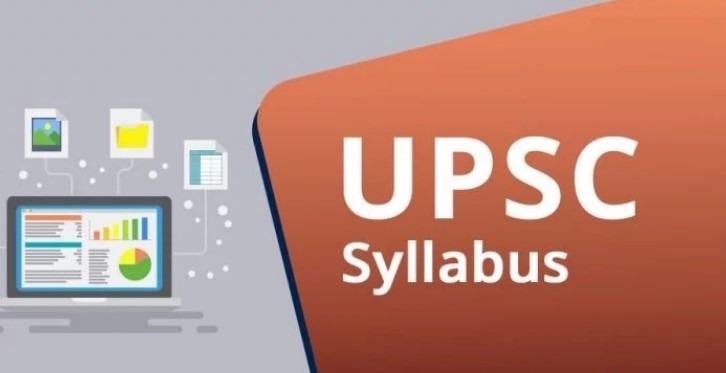
If you aspire to become a civil servant in India, the UPSC CSE exam is the gateway to your ambition. The Civil Services Examination (CSE) is administered by the Union Public Service Commission (UPSC) to choose applicants for various positions, including IAS, IPS, and IFS. Every year, thousands of aspirants appear for this exam with high hopes of achieving their dream job. However, the exam is not an easy nut to crack. It requires rigorous preparation and a thorough understanding of the UPSC CSE syllabus.
Introduction to the UPSC CSE Exam
The UPSC CSE exam is a three-stage competitive exam consisting of the prelims, mains, and interviews. The preliminary exam is an objective type of test, while the main exam is a subjective one. The preliminary exam is a screening test, and the marks scored in this exam are not counted for the final selection. The mains exam is the most crucial stage of the UPSC CSE exam, and the marks obtained in this exam are considered for the final selection. The interview is the last stage of the exam, and it is conducted to assess the personality and suitability of the candidate for civil services.
Understanding the UPSC CSE Syllabus
The UPSC CSE syllabus 2023 is vast and covers various topics from various subjects. It is essential to understand the syllabus to prepare effectively for the exam. The UPSC CSE syllabus can be broadly classified into prelims and mains.
UPSC CSE Syllabus for Prelims
General Studies Paper I and General Studies Paper II (CSAT) make up the preparatory exam. The topics covered in the General Studies Paper I include general science, Indian history and culture, Indian politics and government, global geography, economic and social development, environmental ecology, biodiversity, and climate change. The General Studies Paper II (CSAT) assesses the candidate’s understanding, capacity for logical thought, and analytical skills.
UPSC CSE Syllabus for Mains
The main exam consists of nine papers, nine of which are obligatory and two of which are optional. Essay, General Studies I, General Studies II, General Studies III, General Studies IV, Indian Language, and English Language are the required paper types. The candidate selects the optional papers they wish to take from a list of topics, including history, geography, political science and international relations, sociology, public administration, etc. The main exam gauges a candidate’s conceptual comprehension and capacity for brief and clear thought.
Optional Subjects for UPSC CSE Mains
The optional subject plays a crucial role in the mains exam as it carries a weightage of 500 marks. The candidate must choose the optional subject wisely, considering their interest, background, and availability of study material. The optional subject should be chosen based on the candidate’s strengths and interests. Choosing a subject that the candidate has already studied at the graduation level is advisable. This will help the candidate to save time and effort in understanding the concepts.
Importance of Current Affairs in UPSC CSE
Current affairs play a vital role in the UPSC CSE exam. The questions in the exam are designed to test the candidate’s knowledge of current events and their implications. The candidate should keep themselves updated with the latest happenings by reading newspapers, magazines, and online portals. The candidate should also focus on the national and international news of the last year before the exam.
Most Common Mistakes to Avoid When Getting Ready for the UPSC CSE
While preparing for the UPSC CSE exam, candidates should avoid the following common mistakes:
- Lack of Consistency
Success in the UPSC CSE exam depends on consistency. Many candidates begin their training with considerable zeal but eventually lose direction and consistency.
- Ignoring Current Affairs
Making a significant mistake when preparing for the UPSC CSE exam is ignoring current events. Many applicants ignore the current affairs aspect of the course and concentrate primarily on the static portion.
- Overlapping Study Material
Many candidates make the mistake of using the same study material twice. Instead of using various sources, it is best to pick a few and stay with them.
Conclusion
Cracking the UPSC CSE exam requires hard work, dedication, and a thorough understanding of the syllabus. This article provides a comprehensive guide to the UPSC syllabus CSE, tips for preparing for the exam, and the best resources for studying the syllabus. We have also highlighted some common mistakes aspirants should avoid while preparing for the exam. We hope this article will help you prepare for the UPSC CSE exam and wish you all the best in your future endeavours.
FAQs
Is the PCS exam syllabus the same as UPSC?
Compared to the PCS syllabus, the IAS syllabus is more extensive and covers a broader range of topics. IAS’s course material is also more in-depth than PCS’s. IAS officers must take courses in history, political science, international relations, and other topics, while PCS officers are merely required to take the fundamentals.
How to learn the UPSC CSE syllabus?
Ensure you print out the UPSC test syllabus and read it thoroughly several times. Your goal should be to comprehend every subject covered by the UPSC syllabus. Examine the primary question papers from the previous four to five years and try to connect the question to the subject covered in the syllabus.
What is the syllabus of UPSC CSE prelims?
Ensure you print out the UPSC test syllabus and read it thoroughly several times. Your goal should be to comprehend every subject covered by the UPSC syllabus. Examine the primary question papers from the previous four to five years and try to connect the question to the subject covered in the syllabus.
Can I prepare for PSC and UPSC together?
It is possible to take both the UPSC and PSC exams in the same year because the PSC administers the exams in fewer days, and there are fewer stages to the UPSC exams. However, it would help if you always kept an eye on the official websites of the PSC and UPSC to stay up to date.


